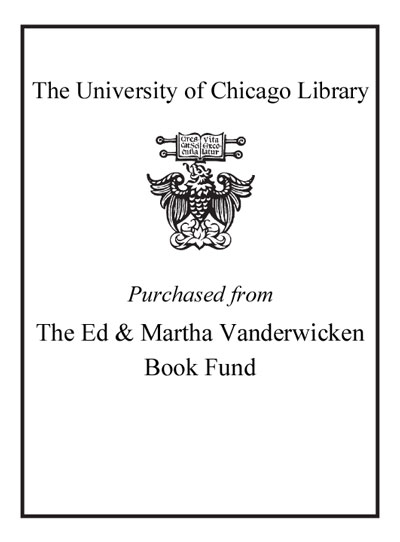Risk-neutral valuation : pricing and hedging of financial derivatives /
Saved in:
| Author / Creator: | Bingham, N. H. |
|---|---|
| Edition: | 2nd ed. |
| Imprint: | Sheffield, UK ; New York : Springer, c2004. |
| Description: | xviii, 437 p. ; 25 cm. |
| Language: | English |
| Series: | Springer finance |
| Subject: | |
| Format: | Print Book |
| URL for this record: | http://pi.lib.uchicago.edu/1001/cat/bib/5540694 |
Table of Contents:
- Contents
- Preface to the Second Edition Preface to the First Edition
- 1. Derivative Background
- 1.1. Financial Markets and Instruments
- 1.1.1. Derivative Instruments
- 1.1.2. Underlying Securities
- 1.1.3. Markets
- 1.1.4. Types of Traders
- 1.1.5. Modeling Assumptions
- 1.2. Arbitrage
- 1.3. Arbitrage Relationships
- 1.3.1. Fundamental Determinants of Option Values
- 1.3.2. Arbitrage Bounds
- 1.4. Single-period Market Models
- 1.4.1. A Fundamental Example
- 1.4.2. A Single-period Model
- 1.4.3. A Few Financial-economic Considerations Exercises
- 2. Probability Background
- 2.1. Measure
- 2.2. Integral
- 2.3. Probability
- 2.4. Equivalent Measures and Radon-Nikodym Derivatives
- 2.5. Conditional Expectation
- 2.6. Modes of Convergence
- 2.7. Convolution and Characteristic Functions
- 2.8. The Central Limit Theorem
- 2.9. Asset Return Distributions
- 2.10. In.nite Divisibility and the Levy-Khintchine Formula
- 2.11. Elliptically Contoured Distributions
- 2.12. Hyberbolic Distributions Exercises
- 3. Stochastic Processes in Discrete Time
- 3.1. Information and Filtrations
- 3.2. Discrete-parameter Stochastic Processes
- 3.3. De.nition and Basic Properties of Martingales
- 3.4. Martingale Transforms
- 3.5. Stopping Times and Optional Stopping
- 3.6. The Snell Envelope and Optimal Stopping
- 3.7. Spaces of Martingales
- 3.8. Markov Chains Exercises
- 4. Mathematical Finance in Discrete Time
- 4.1. The Model
- 4.2. Existence of Equivalent Martingale Measures
- 4.2.1. The No-arbitrage Condition
- 4.2.2. Risk-Neutral Pricing
- 4.3. Complete Markets: Uniqueness of EMMs
- 4.4. The Fundamental Theorem of Asset Pricing: Risk-Neutral Valuation
- 4.5. The Cox-Ross-Rubinstein Model
- 4.5.1. Model Structure
- 4.5.2. Risk-neutral Pricing
- 4.5.3. Hedging
- 4.6. Binomial Approximations
- 4.6.1. Model Structure
- 4.6.2. The Black-Scholes Option Pricing Formula
- 4.6.3. Further Limiting Models
- 4.7. American Options
- 4.7.1. Theory
- 4.7.2. American Options in the CRR Model
- 4.8. Further Contingent Claim Valuation in Discrete Time
- 4.8.1. Barrier Options
- 4.8.2. Lookback Options
- 4.8.3. A Three-period Example
- 4.9. Multifactor Models
- 4.9.1. Extended Binomial Model
- 4.9.2. Multinomial Models Exercises
- 5. Stochastic Processes in Continuous Time
- 5.1. Filtrations; Finite-dimensional Distributions
- 5.2. Classes of Processes
- 5.2.1. Martingales
- 5.2.2. Gaussian Processes
- 5.2.3. Markov Processes
- 5.2.4. Diffusions
- 5.3. Brownian Motion
- 5.3.1. Definition and Existence
- 5.3.2. Quadratic Variation of Brownian Motion
- 5.3.3. Properties of Brownian Motion
- 5.3.4. Brownian Motion in Stochastic Modeling
- 5.4. Point Processes
- 5.4.1. Exponential Distribution
- 5.4.2. The Poisson Process
- 5.4.3. Compound Poisson Processes
- 5.4.4. Renewal Processes
- 5.5. Levy Processes
- 5.5.1. Distributions
- 5.5.2. Levy Processes
- 5.5.3. Levy Processes and the Levy-Khintchine Formula
- 5.6. Stochastic Integrals; Ito Calculus
- 5.6.1. Stochastic Integration
- 5.6.2. Ito's Lemma
- 5.6.3. Geometric Brownian Motion
- 5.7. Stochastic Calculus for Black-Scholes Models
- 5.8. Stochastic Differential Equations
- 5.9. Likelihood Estimation for Diffusions
- 5.10. Martingales, Local Martingales and Semi-martingales
- 5.10.1. Definitions
- 5.10.2. Semi-martingale Calculus
- 5.10.3. Stochastic Exponentials
- 5.10.4. Semi-martingale Characteristics
- 5.11. Weak Convergence of Stochastic Processes
- 5.11.1. The Spaces Cd and Dd
- 5.11.2. Definition and Motivation
- 5.11.3. Basic Theorems of Weak Convergence
- 5.11.4. Weak Convergence Results for Stochastic Integrals
- Exercises
- 6. Mathematical Finance in Continuous Time
- 6.1. Continuous-time Financial Market Models
- 6.1.1. The Financial Market Model
- 6.1.2. Equivalent Martingale Measures
- 6.1.3. Risk-neutral Pricing
- 6.1.4. Changes of Numeraire
- 6.2. The Generalized Black-Scholes Model
- 6.2.1. The Model
- 6.2.2. Pricing and Hedging Contingent Claims
- 6.2.3. The Greeks
- 6.2.4. Volatility
- 6.3. Further Contingent Claim Valuation
- 6.3.1. American Options
- 6.3.2. Asian Options
- 6.3.3. Barrier Options
- 6.3.4. Lookback Options
- 6.3.5. Binary Options
- 6.4. Discrete- versus Continuous-time Market Models
- 6.4.1. Discrete- to Continuous-time
- Convergence Reconsidered
- 6.4.2. Finite Market Approximations
- 6.4.3. Examples of Finite Market Approximat

